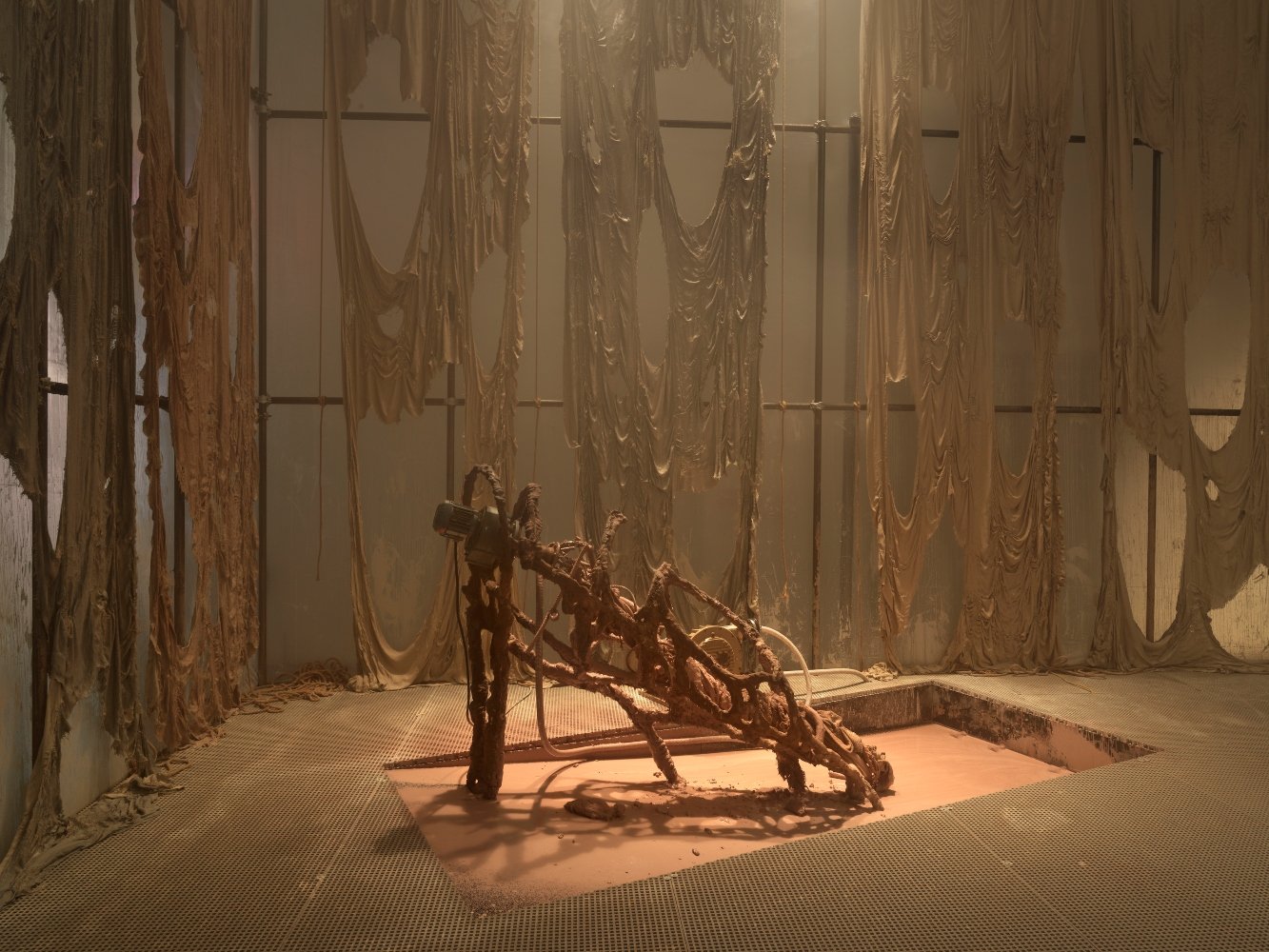
The annual commission for Tate Modern’s capacious Turbine Hall has tended to go to established artists at the height of their careers: Louise Bourgeois for the first edition in 2000, Anish Kapoor in 2002, and Bruce Nauman in 2005. This year, though, Tate said that the closely watched exhibition will be staged by the daring 35-year-old artist Mire Lee, whose disturbing and alluring kinetic sculptures have appeared in major shows around the world over the past few years.
Lee, who works between Seoul and Amsterdam, joins a small group of artists who have been tapped for the London venue in their mid-30s, including Olafur Eliasson (in 2004) and Tino Sehgal (2012).
Details on Lee’s project are sparse, for now, but the dates are set. Her Hyundai Commission, as the series is known, will open on October 8, the week of the Frieze art fair in London, and run through March 16. A triumvirate is curating: Ann Coxon and Alvin Li, curators of international art at Tate Modern, and Bilal Akkouche, an assistant curator there.
The Tate display comes as Lee has been on a tear, contributing thrilling pieces to the 2022 iterations of the Venice Biennale, the Carnegie International in Pittsburgh, and the Busan Biennale in her native South Korea. In Busan, Lee erected scaffolding in a massive abandoned building and mounted on it fabric torn with holes that suggested lesions or burns.
Other recent pieces by Lee—powered by motors, flowing with vile-seeming substances—can bring to mind malfunctioning organs or malformed creatures as they transmit fraught psychological states. They sometimes appear to be breaking down or metamorphosing.
“I always wanted to make wild-looking kind of works, or crude works,” Lee told me in an interview for the New York Times as she prepped a solo outing last year at the New Museum in New York. Using motors and other unusual techniques, she said, “gave me surprising results.”